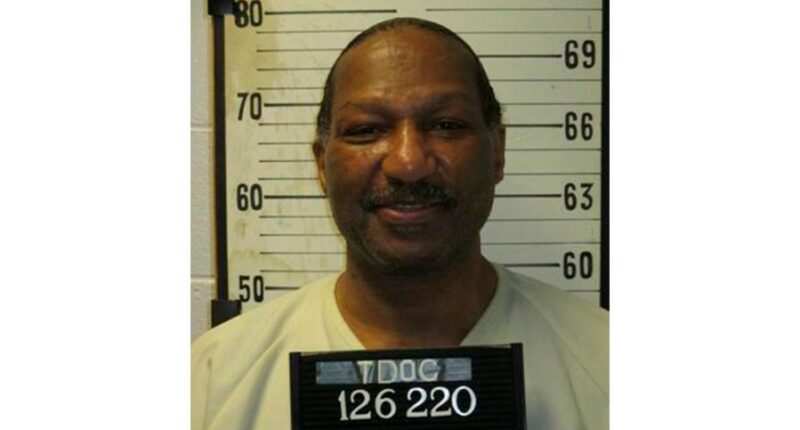Share this @internewscast.com

Tennessee is preparing for an execution on Tuesday that might be the first instance where a man is executed with an active defibrillator implanted in his chest, according to experts.
Governor Bill Lee refused to offer a reprieve on Monday, allowing Byron Black’s execution to proceed after a legal dispute and lingering questions about whether the implantable cardioverter-defibrillator might activate when the lethal drugs are administered.
The Death Penalty Information Center, a nonprofit organization, indicated that it is not aware of any similar claims made by death row inmates concerning defibrillators or pacemakers. Black’s legal team also reported they have not identified a similar case.
Governor Lee stated that the courts have “universally determined that it is lawful to execute the jury’s sentence imposed on Mr. Black for the vicious murders of Angela Clay and her daughters Lakeisha, age 6, and Latoya, age 9.”
The U.S. Supreme Court dismissed Black’s appeals on Monday. If carried out, this would be Tennessee’s second execution since May, after a five-year halt due to COVID-19 and mistakes made by state corrections officials.
This year, 27 people have been executed by order of the court in the U.S., with nine more scheduled for execution across seven states by the end of 2025. The number of executions this year surpasses the 25 conducted in both last year and 2018, marking the most since 2015, when 28 individuals were executed.
Black’s condition
Black, 69, is in a wheelchair, and he has dementia, brain damage, kidney failure, congestive heart failure and other conditions, his attorneys have said.
The implantable cardioverter-defibrillator he has is a small, battery-powered electronic device that is surgically implanted in the chest. It serves as a pacemaker and an emergency defibrillator. Black’s attorneys say in order to be sure it’s off, a doctor must place a programming device over the implant site, sending it a deactivation command, with no surgery required.
In mid-July, a trial court judge agreed with Black’s attorneys that officials must have his device deactivated to avert the risk that it could cause unnecessary pain and prolong the execution. But the state Supreme Court intervened July 31 to overturn that decision, saying the other judge lacked the authority to order the change.
The state has disputed that the lethal injection would cause Black’s defibrillator to shock him. Even if shocks were triggered, Black wouldn’t feel them, the state said.
Black’s attorneys have countered that even if the lethal drug being used, pentobarbital, renders someone unresponsive, they aren’t necessarily unaware or unable to feel pain.
Kelley Henry, Black’s attorney, said the execution could become a “grotesque spectacle.”
The legal case also spurred a reminder that most medical professionals consider participation in executions a violation of health care ethics.
Black’s case
Black was convicted in the 1988 shooting deaths of his girlfriend Angela Clay, 29, and her two daughters. Prosecutors said he was in a jealous rage when he shot the three at their home. At the time, Black was on work-release while serving time for shooting Clay’s estranged husband.
Linette Bell, whose sister and two nieces were killed, recently told WKRN-TV: “He didn’t have mercy on them, so why should we have mercy on him?”
Intellectual disability claim
In recent years, Black’s legal team has unsuccessfully tried to get a new hearing over whether he is intellectually disabled and ineligible for the death penalty under U.S. Supreme Court precedent.
His attorneys have said that if they had delayed a prior attempt to seek his intellectual disability claim, he would have been spared under a 2021 state law.
Nashville District Attorney Glenn Funk contended in 2022 that Black is intellectually disabled and deserved a hearing under that 2021 law, but the judge denied it. That is because the 2021 law denies a hearing to people on death row who have already filed a similar request and a court has ruled on it “on the merits.”
In Funk’s attempt, he focused on input from an expert for the state in 2004 who determined back then that Black didn’t meet the criteria for what was then called “mental retardation.” But she concluded that Black met the new law’s criteria for a diagnosis of intellectual disability.
Black also sought a determination by the courts that he is incompetent to be executed.

















